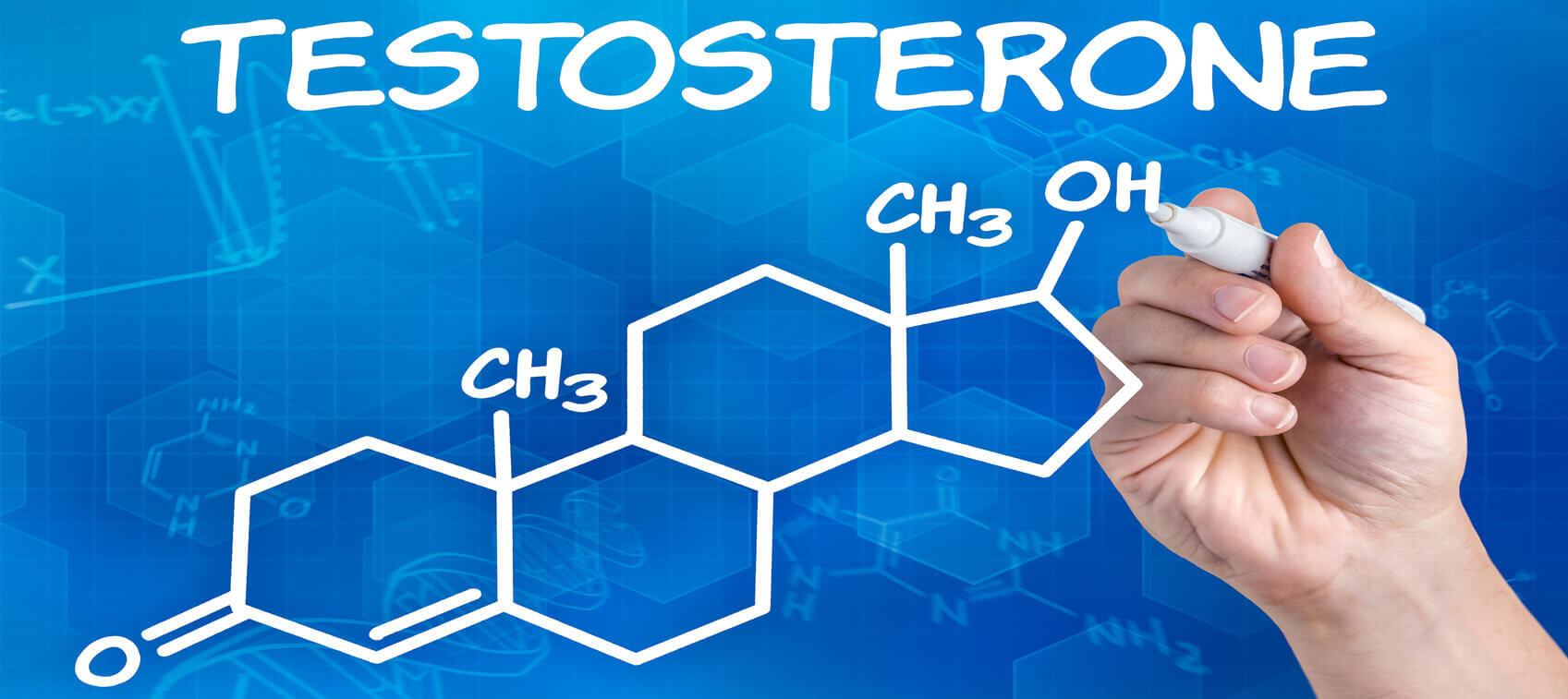
Testosterone: A hormone that causes facial hair, muscularity, a deep voice, speeding tickets, and the desire to watch professional wrestling, Arnold Schwarzenegger movies, and fistfights.
Corny joke, yes...but there’s some truth to it. Testosterone is responsible for many of the physical, mental, and emotional differences between males and females. But this hormone also has far-reaching physiological functions and a decline in its production—which is a normal part of aging—impacts multiple aspects of men’s health.
Sex drive and erectile function, mood, sleep, energy, focus and motivation, body fat and muscle mass, bone density, insulin sensitivity, cardiovascular health: All may be adversely affected by decreases in testosterone—and improved by testosterone replacement therapy (TRT).
TRT gets a bum rap. After a steady rise in popularity following AndroGel’s approval in the early 2000s, usage dropped drastically beginning in 2014, when the FDA reported “possible” links with heart attacks and strokes. Recent research, however, confirms that TRT is not only safe but actually protective against cardiovascular disease. Moreover, it has a broad range of additional benefits.
Studies Show TRT Is Safe
Let’s address safety issues first. The handful of studies that prompted the FDA’s cardiovascular warnings struck fear into many doctors and patients. However, this finding is not supported by the bulk of the medical literature, as demonstrated by an exceptionally comprehensive meta-analysis published in 2017.
In one comprehensive analysis, Canadian researchers reviewed 87 randomized controlled clinical trials and 51 nonrandomized studies to evaluate the harms and benefits of TRT in men with low testosterone levels. They concluded, “Consistent with most previous meta-analyses, we found that the use of TRT improved quality of life, depression, libido, and erectile function, with no increase in cardiovascular death or other major adverse events.” Although controversy persists, more and more experts now agree that TRT has a neutral to positive effect on risk of heart attack and stroke.
What about prostate cancer? This is a logical concern, since testosterone suppression is a common treatment for this disease. However, decades of research confirm that there is no relationship between a man’s natural testosterone level and his risk of prostate cancer. Nor is there any evidence that TRT raises PSA or increases cancer risk. Most telling, doctors are now prescribing TRT for men with a history of low-risk prostate cancer, as studies show that it poses no danger of progression or recurrence and dramatically improves quality of life.
TRT and Obesity, Diabetes, and Heart Disease
Most men use testosterone because it makes them feel better—sexier, stronger, and more positive, focused, and energetic. But there’s more.
It’s no secret that we are in the midst of an epidemic of obesity and diabetes. More than 40 percent of American adults are obese, and 12 percent have diabetes. What you may not know is that one in three men of all ages who are obese or diabetic have below-normal testosterone levels.
Although TRT is rarely prescribed for males with “diabesity,” it makes a lot of sense. Testosterone plays a central role in regulating muscle/fat mass and insulin sensitivity, and raising levels with TRT results in losses of body fat, gains in muscle mass, and improvements in insulin sensitivity and inflammation.
Many studies are finding that men with baseline low testosterone who were prescribed TRT had better cardiovascular outcomes than untreated. Testosterone may even turn out to be an accepted treatment for cardiovascular disease. Patients with heart failure, for example, have significant declines in muscle mass, strength, and endurance. Research suggests that TRT reduces muscle wasting and improves strength and exercise capacity as well as some markers of heart function.
Women and Testosterone
Testosterone may be the quintessential male hormone, but women produce it too. As in men, testosterone affects sexual function, fat distribution, and muscle and bone mass—and like other sex hormones, levels decline during menopause. Although estrogen and progesterone are prescribed to ease menopausal symptoms, testosterone replacement is rarely discussed. This is unfortunate, because adding small amounts of testosterone to female hormone replacement therapy has several benefits.
Most noticeable is increased sex drive, which for many women bottoms out around menopause. It also improves energy, mood, and motivation, as well as muscle strength and bone density. Although a little testosterone is a good thing, too much may cause acne, hair growth in unwanted places, and other side effects. However, it is generally well tolerated, and most women give it a thumbs-up.
Natural Ways to Raise Testosterone
I am often asked about natural ways to raise testosterone. A good workout, especially resistance training, temporarily boosts levels, and regular exercise improves body composition and insulin sensitivity, which may result in increases over the long term. Although obesity is associated with suboptimal testosterone production, weight loss helps it bounce back—and the more pounds lost, the more significant the rebound.
Vitamin D, zinc, magnesium, and boron may also help, especially if nutritional status is low to begin with. But don’t expect miracles. The same goes for supplements that claim to be testosterone boosters and sexual enhancers. Some of them, including maca, ginseng, Tribulus terrestris, fenugreek, and D-aspartic acid, may give libido a lift and possibly have some effect on testosterone. But for optimal results, stick with TRT.
My Recommendations
If you feel you could benefit from TRT, talk to your doctor about a blood test to determine your testosterone level. All forms of TRT (gels, creams, patches, injections) seem to be comparable except for oral, which is not recommended due to potential negative effects on the liver. Have your hormones retested periodically and your dosage adjusted, if needed, to make sure your testosterone is in the target range of a healthy young man.
To find a doctor in your area well versed in testosterone therapy, visit the American Academy of Anti-Aging or American College for Advancement in Medicine.


